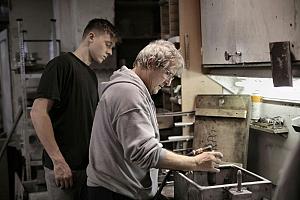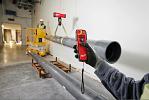- FMA
- The Fabricator
- FABTECH
- Canadian Metalworking
Planting the seeds for change
It’s too late to make up for years of neglect.
- By Canadian Metalworking
- July 9, 2015
The energy in the air was contagious on the evening of May 27 at the Prairieland Exhibition Grandstand in Saskatoon as over 500 adolescent competitors from across the country were assembled, grouped by their provincial or territorial colours and then, armed with noisemakers and the excitement of youth, paraded into the stadium.
It was the opening ceremonies for the 2015 Skills Canada National Competition, and as each collection of representatives marched out waving their flags you could feel their sense of pride.
Congratulations to the Skills Canada organization for doing its part to create a national platform that gets youth engaged and excited about excelling in a skilled trade. For the competitors involved it was a memorable experience, and the opportunity to represent your region at a national level is powerful.
But aside from the competitors, to me the greatest benefit of this annual competition that travels the country (next year is Moncton, New Brunswick) is the exposure it provides to youth in the host communities. School buses full of students from Saskatoon and surrounding area filled the halls as the competitors performed. Some 5,000 school-aged kids were gaining first-hand exposure to occupations they likely didn’t even know existed. This was the win.
In Saskatoon I was speaking with with Dan Tadic, executive director of the Canadian Welding Association, and he expressed the importance of opening the eyes of kids in high school and earlier to these career opportunities. A week prior to the Skills event the Canadian Welding Bureau launched a new comprehensive national educational/training platform called Acorn, which was also rolled out to welding educators at a conference in Saskatoon just days before the skills event. And at the Skills event Deborah Mates, director of the CWA Foundation was promoting the Mind Over Metal week-long summer camps taking place across the country that provide hands-on welding experience to at-risk youth aged 12 to 15.
It’s programs like these that are raising the level of consciousness of skilled trades in the minds of kids. As Ian Campbell suggests in his Business of Welding column, it’s time that the work welding and related professions do be considered a career, not just a job.
It’s too late to make up for years of neglect, but it does appear the seeds for a cultural change in the perception of skilled work in this country are being planted and will begin to take root.
Doug Picklyk, Editor
subscribe now


Keep up to date with the latest news, events, and technology for all things metal from our pair of monthly magazines written specifically for Canadian manufacturers!
Start Your Free SubscriptionAbout the Author
- Industry Events
ZEISS Quality Innovation Days 2024
- April 15 - 19, 2024
Tube 2024
- April 15 - 19, 2024
- Düsseldorf, Germany
CTMA Economic Uncertainty: Helping You Navigate Windsor Seminar
- April 30, 2024
- Windsor, ON Canada
MME Winnipeg
- April 30, 2024
- Winnipeg, ON Canada
CTMA Economic Uncertainty: Helping You Navigate Kitchener Seminar
- May 2, 2024
- Kitchener, ON Canada





















